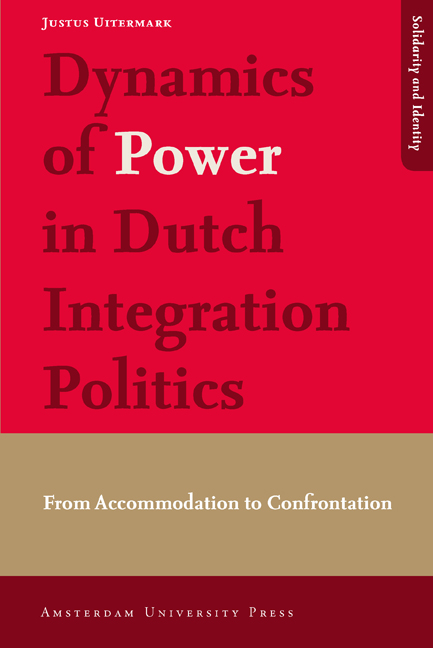8 - The Minorities Policy and the Dominance of the Radical Left: Ethnic Corporatism in Amsterdam in the 1980s
Published online by Cambridge University Press: 15 January 2021
Summary
I felt as though I was conducting some sort of archeological study of civil society when I arrived at the neighborhood center in Amsterdam Oud-West. I was to visit an interviewee from Kommittee Marokkaanse Arbeiders Nederland (the Committee of Moroccan Workers in the Netherlands). KMAN was established in a squat in 1975. A few years later it opened its headquarters just outside the historic center of Amsterdam. With the support of subsidies and many Moroccan and native volunteers, the association organized frenetically and created an extensive infrastructure of neighborhood subcommittees, working groups and consulting hours. Almost nothing of this was left when I conducted my interview in 2006. Its only regular meetings took place in this neighborhood center which provided KMAN space alongside many other small associations from the neighborhood. KMAN notices were on the front door. I also found a brochure of the City Moroccan Council (Stedelijke Marokkaanse Raad, SMR) listing a nine-digit phone number, which means it must have been printed before 1995 (when phone numbers were extended by a single digit).
After searching through the deserted corridors of the neighborhood center, I found myself in a room with elderly Moroccan men drinking tea, playing games and conversing in Arabic or Berber (I cannot tell the difference). When I entered, they stopped their conversations and looked at me with surprise, as if they thought I had entered by mistake. After discovering that I had made an appointment with a member of the association, one of the men offered me a seat at his table. He was about 45 years old and slightly younger than most of the other men. He certainly was more communicative. In broken Dutch and English he explained that he had lived in France before and so did not have many memories of KMAN. But he was nevertheless nostalgic about those days of protests, campaigns and events, and told me of their plans to rejuvenate the association.
After some time, a tall man with short gray hair entered the room. I recognized him from a protest against the police killing of a Moroccan man in Amsterdam West that KMAN had organized with other minority and anti-racist associations.
- Type
- Chapter
- Information
- Dynamics of Power in Dutch Integration PoliticsFrom Accommodation to Confrontation, pp. 167 - 184Publisher: Amsterdam University PressPrint publication year: 2013



